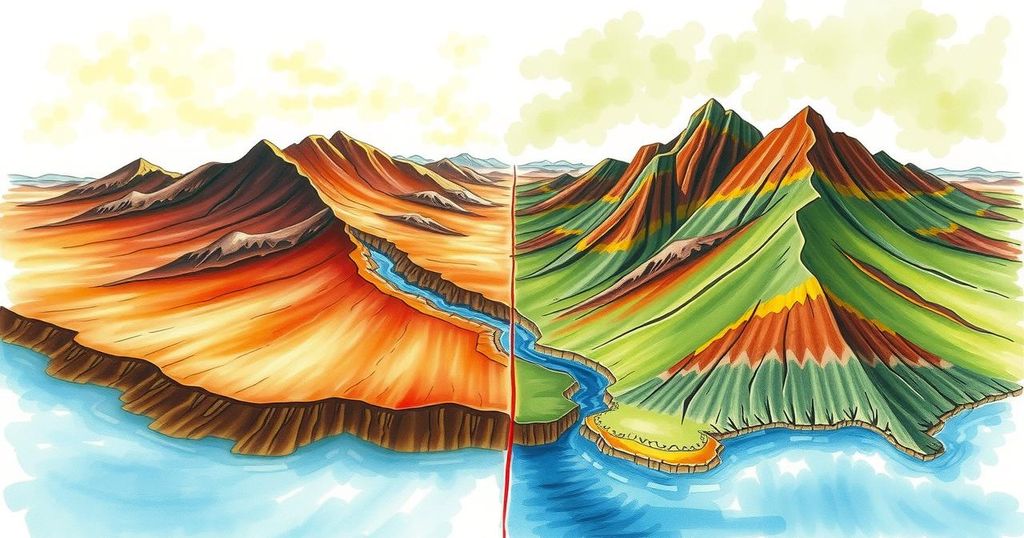Ethiopia and Eritrea are nearing a possible conflict due to instability in Tigray, stemming from historical tensions and recent political developments. Following a civil war, Eritrea and Ethiopia’s diplomatic relations have deteriorated, leading to fears of war and humanitarian crises in the region. Key factors include military mobilization and accusations of collaboration with dissidents.
Longstanding tensions between Ethiopia and Eritrea may be escalating towards another conflict, as regional experts and officials in northern Ethiopia have indicated. Such a war would represent a serious setback for the peace agreement that Ethiopian Prime Minister Abiy Ahmed achieved in 2019, for which he was awarded the Nobel Peace Prize, and could lead to a humanitarian crisis in the already troubled Horn of Africa.
Recent unrest in the Tigray region, which suffered a devastating civil war from 2020 to 2022, has heightened fears of renewed conflict. Eritrean troops crossed into Tigray during that war to assist Ethiopian federal forces against the Tigray People’s Liberation Front (TPLF). The peace agreement reached in November 2022, however, has since strained relations between Ethiopia and Eritrea, which did not take part in the negotiations. The TPLF had governed Tigray in the interim, but recent dissensions within it have caused further divisions.
The emergence of a breakaway faction that captured the town of Adigrat has exacerbated tensions; while they accuse the leadership of compromising Tigray’s interests, the interim government claims these dissidents have allied themselves with Eritrea. Each faction vehemently denies the accusations against one another. Experts caution that Ethiopia and Eritrea may support opposing sides in Tigray, setting the stage for potential direct conflict.
In response to the escalating situation, Eritrea has reportedly initiated a nationwide military mobilization, while Ethiopia has deployed troops near the Eritrean border. Neither government has commented publicly on these developments to date.
Historically, the relationship between Ethiopia and Eritrea has been tumultuous; Eritrea was annexed by Ethiopia in 1962, leading to a protracted struggle for independence that culminated in 1993. While early ties were favorable, relations soured after a conflict in 1998 over the disputed town of Badme, which resulted in significant casualties. A peace agreement in 2018 had offered a path toward normal diplomatic relations, but renewed conflict during the Tigray war has altered this trajectory.
Tensions increased notably towards the end of the Tigray conflict when Ethiopia entered into the Pretoria Agreement with the TPLF. Eritrea’s exclusion from this deal has caused discontent, and it has kept some of its military presence in Ethiopia, despite calls for withdrawal. Moreover, Eritrean officials have reacted negatively to Abiy’s assertions that Ethiopia should have access to the sea, a statement interpreted by many in Eritrea as a provocative military threat.
Additional strains have surfaced, including the suspension of Ethiopian Airlines flights to Eritrea, once a symbol of restored ties, following the freezing of the airline’s bank account in Eritrea. In a significant strategic move, Eritrea has formed a security pact with Egypt and Somalia, interpreted as a measure to counter Ethiopia’s regional ambitions.
The situation between Ethiopia and Eritrea has become increasingly precarious, with longstanding historical grievances and recent political dynamics contributing to the risks of renewed conflict. The civil war in Tigray has deepened rifts, and the lack of diplomatic communication between both governments leaves the potential for military escalation. Understanding the complex history and present relations is crucial to navigating future peace efforts in the Horn of Africa.
Original Source: ntvkenya.co.ke




